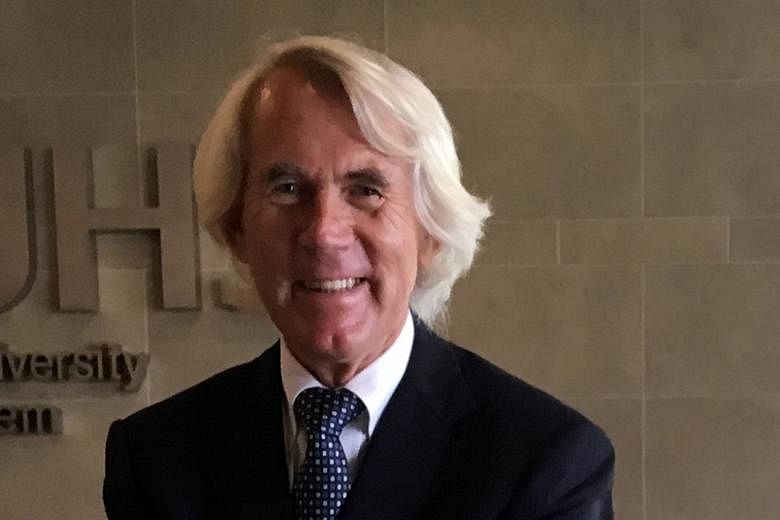With almost 50 cases of sudden cardiac deaths in football since 2014, Fifa, the game's governing body, is faced with a troubling statistic .
This month, in three separate incidents in three different countries, Cameroonians Patrick Ekeng and Jeanine Christelle Djomnang and Brazilian Bernardo Ribeiro all collapsed on the pitch and later died of suspected heart problems.
The death of Ekeng, 26 and capped twice by his country, was particularly frustrating for Fifa's chief medical officer Jiri Dvorak, after it emerged that there was no automatic external defibrillator (AED) on the sidelines during the club match in Romania or in the ambulance that ferried the player to hospital.
More needs to be done to ensure that adequate medical equipment is available at football stadiums worldwide, he told The Straits Times on Friday.
The 68-year-old Czech-born Swiss was in Singapore as a guest speaker at the National University Hospital, which is hoping to join Fifa's global network of accredited Medical Centres of Excellence.
Fifa established an international registry for sudden cardiac arrest and sudden cardiac death two years ago and so far it has registered 49 cases worldwide.
Professor Dvorak added: "We (as Fifa) take the responsibility that we have to do everything to reduce those traumatic incidents...
"Some of the cases are preventable and treatable. Usually it's the arrhythmia and once you had that occurrence, you can save the life with defibrillation. Then you can do a set of diagnostic procedure and sometimes it is curable with very simple surgical procedures."
Fifa issued a Medical Emergency Bag, which contains an AED among other equipment, to all its member associations in 2013.
But the onus is ultimately on the football associations and clubs to have such tools on standby.
"We cannot force them," he said.
What can be enforced though, are stringent drug checks.
While there have been scandals - five North Korean players tested positive for steroids at the 2011 Women's World Cup and Liverpool's Mamadou Sakho failed a drug test in March - these have been few and far between, noted Prof Dvorak.
Fifa performs 30,000 doping tests annually and 0.3 per cent are positive cases, mostly involving recreational drugs. Anabolics, or performance enhancements, form a mere 0.02 per cent.
Unlike individual sports like athletics or cycling, where drugs can offer a huge advantage, football is less susceptible to doping, Prof Dvorak added.
He explained: "You need speed, endurance, technical abilities, skills and then also little bit of luck. All those, to boost with doping, is very difficult or almost impossible.
"So you cannot imagine to duplicate football players like (Lionel) Messi with artificial means."


